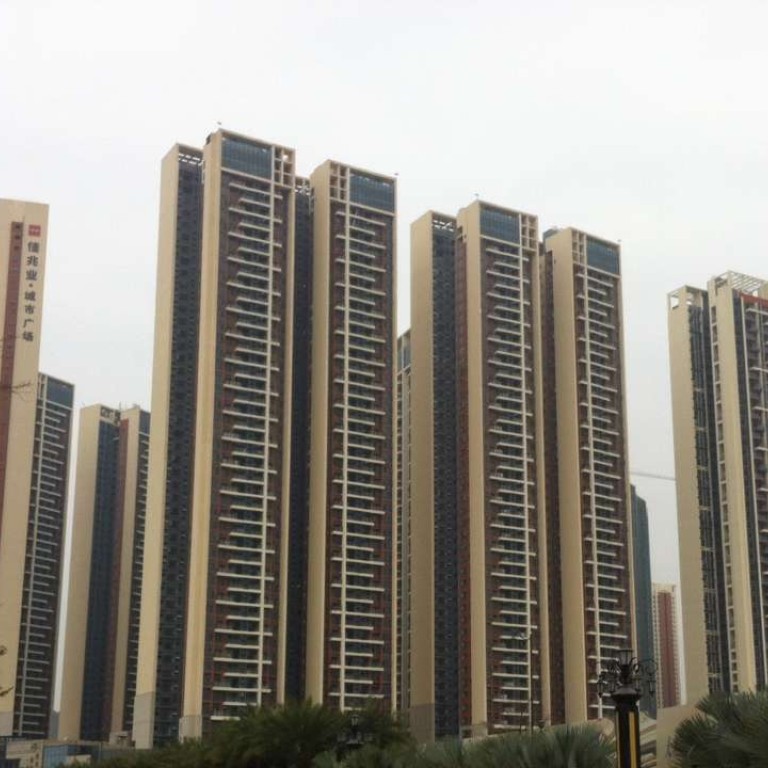
A chill descends over Shenzhen’s formerly red-hot housing market
Fall in transaction volumes in March may signal turning point in mainland China’s most expensive housing market
The skyrocketing Shenzhen housing market cooled off in March as transaction volumes saw a marked slowdown, signalling an abrupt turn in market sentiment.
Total transactions by area in the nation’s most expensive city decreased 24 per cent to 89,400 square metres last week over the prior week, and fell 10 per cent year on year, according to China Index Academy. That compares to at least 25 per cent year on year growth in three other first-tier cities of Beijing, Shanghai and Guangzhou.
Over the weekend, mainland publication The Paper reported that second hand home prices were falling, citing the example of a flat that recently sold for a 2 million yuan (HK$2.4 million) discount, representing a 12 per cent cut in price, as the investor who bought the property wanted to cash out as soon as possible.
“The sell off in the second hand market is an important signal to the market, and that can spread to primary market,” said Han Shitong, deputy director of the Guangdong Real Estate Industrial Research Association.
Now prices have gone far beyond the level an average person can afford
Home prices in Shenzhen surged over the past year with official data showing that new home prices in February jumped as much as 57.8 per cent year on year.
arket watchers point out that speculative practises flooded into the Shenzhen market, increasing leverage risk. In response, the city’s top policy makers admitted prices rose “too fast” and issued a warning last month of possible tightening measures to come.
n the latest move last week, Shenzhen put a stop to crowd funding platforms that were used by developers, agencies and financial institutions to help buyers purchase homes.
Property consultant Han said he was worried that any tighten policies could result in a market crash.
“Without policies, the market has already begun to slow down as investors exit, so any [tighter] policies could be risky,” he said.

Foreseeing a turning point in the market, developers have started to cut selling prices in newly launched developments to clear stock faster.
The Paper reported that a new project in Shenzhen’sLonghua district has set an initial selling price nearly 20 per cent cheaper than similar projects in the area.
Carol Wu, China property analyst at DBS Vickers, said she expects price growth will ease in Shenzhen after pent-up demand was released over the past few months due to “panic buying”.
“Now prices have gone far beyond the level an average person can afford,” said Wu, citing the mortgage-to-income ratio of 80 to 90 per cent in Shenzhen compared with the national average of about 34 per cent.
Han said the Shenzhen municipal government announced plans last month to construct 400,000 public housing units over the next five years, which means the city’s supply of new flats would double every year from 2016 to 2020. This would further weaken the market sentiment, he added.

